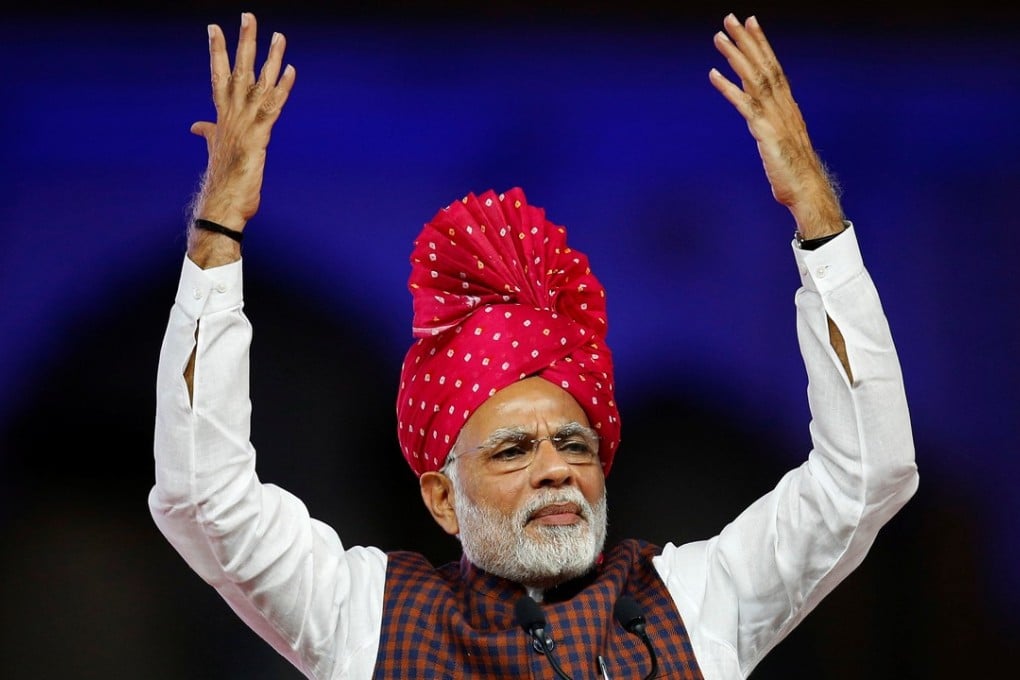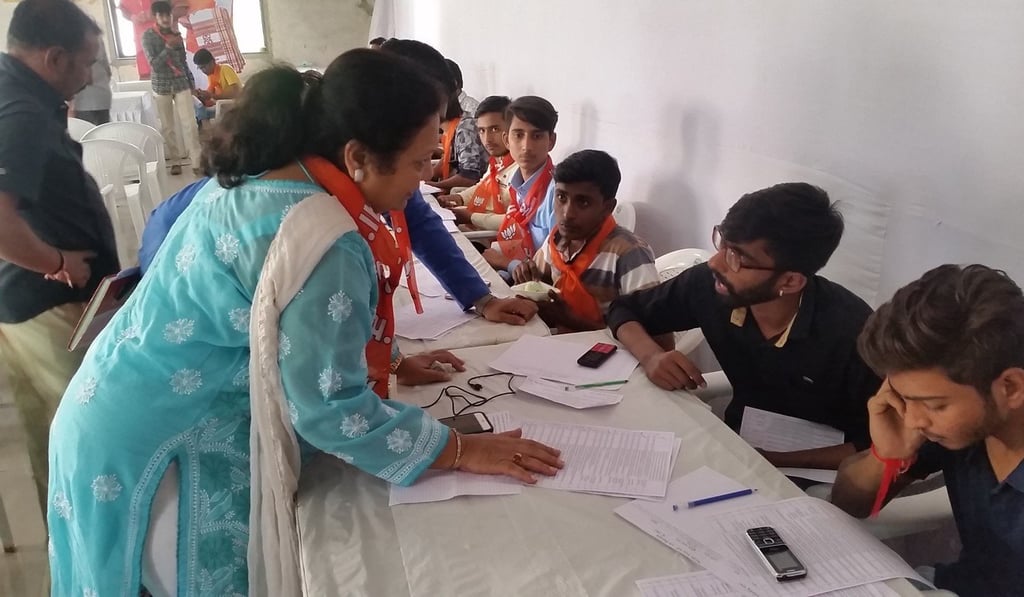Modi is facing a perfect storm in Gujarat. Can he weather it?
Caste alienation, a resurgent opposition and popular discontent challenge Indian leader in his home base. His continued grip on power will depend on whether he manages to stand his ground

A round of ice cream is passed around the hall to mark the event. There’s a cake too – it’s the local unit leader’s birthday – and a “happy birthday to you” singalong by party workers.
Speeches and festivities over, Darshana Jardosh, the member of parliament from Surat, gets down to business. Karanj is one of the seven Assembly seats that make up her parliamentary constituency. It’s not difficult to see why the 56-year-old Jardosh has won two elections back to back. Powerful yet approachable, she exudes clinical efficiency and infinite energy – a bit like her Hindu nationalist party, that has ruled Gujarat for the past 22 years.

Jardosh takes stock of the newly set up social media cell, then takes a tour of the two rows of callers along the sides of the hall. Two fresh-faced college students volunteering for the BJP give her a rundown of the day’s work so far. It’s mostly going well, they say. She seems pleased and moves on to the next row.
Withdrawal symptoms: cash is still king in India, Modi not so much
The BJP during the 2014 general election launched a nationwide campaign asking people to dial a given number to register support, she explains to me. Some 100 million calls were received, of which 1.1 million were from Surat and about 50,000 from Karanj. The party had stored the numbers in its database then and is now reconnecting with the callers. “We are inviting them to volunteer and also asking them for feedback. Once we have contacted all those on the list, we’ll call other registered voters to rally support.”
